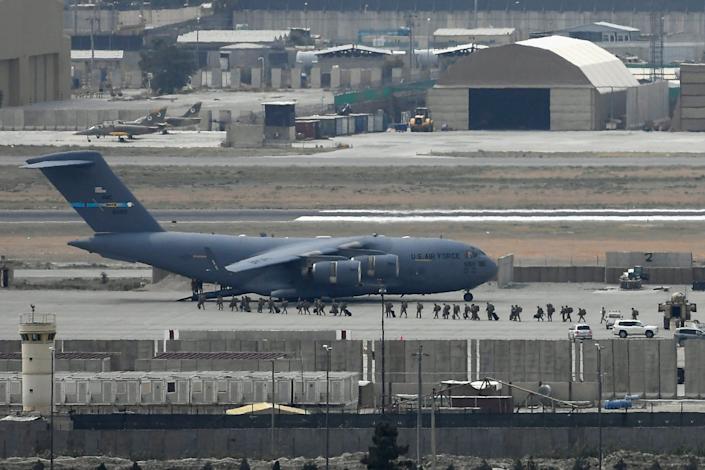The United States has retired its lengthy military expedition in Afghanistan and officially withdrawn from the country on August 31, 2021. We must commend it as a brave decision by U.S. President Joe Biden. Biden, a former war hawk, has been resolute in his decision to end the United States’ association with Afghanistan while facing opposition from both the Democrats and the Republicans. It did not take long after the United States’ withdrawal of troops from Afghanistan for the Afghan government to collapse and the Taliban to take control over parts of the country. In fact, Kabul fell to the Taliban on August 15, as President Ashraf Ghani fled the country.
The 20 year long American military project has been an utter failure. The sheer fact that it did not even take any effort from the Taliban to occupy parts of the country should be a testament to the United States’ failure in this neo-imperialist project. Aidan M Mohan (22), a graduate student from the English Department at Queens College says, “Afghanistan has been treated like a board game for empires since the Victorian era. American had no right to be there. The meddling of empires in that country is what created the conditions that the Taliban exploited and continues to exploit. It is undoubtedly a good thing that American troops have left Afghanistan.”
Evan Turiano, a Ph.D. candidate in History at the CUNY Graduate Center who taught at Queens College from 2017 to 2021 agrees with Aidan M Mohan, “I don’t think there was any way that Biden could have conducted the withdrawal differently to prevent the Taliban insurgency… So, while the scenes out of Kabul are beyond tragic, I’m glad that the U.S. military didn’t stay in Afghanistan forever to delay this inevitable outcome.” This is indeed one of the glaring topics regarding the Afghanistan issue in mainstream American media: questions about when or how to withdraw from Afghanistan. Even the self-declared foreign policy experts on social media have chimed into trash Biden’s “weak” decision.
Isn’t the bigger issue the American foreign policy “question(s)” itself? In other words, why has Afghanistan become a “question” or a “concern” for the American people? Why indeed has it become a “question” for the American politicians? We should really be drawn to the fact that warmongering and bloodthirsty media and news propaganda has polluted the brains of the American people so much that they have “questions” about what should be done with Afghanistan where they have no legal or moral right to be. It has been force fed to the American people that they are the father figures of the world who must police the middle east from their drones and decide the fates of millions of people. Due to this, Afghanistan does not exist to them as a country with people made of flesh and blood; rather, it is to them another decision, another “question,” another symbol of power. Will the United States’ attitude about the outside world as a military playground ever change if its people don’t recognize the devastation of actual lives? As Evan Turiano writes, “I hope Americans take [the failure in Afghanistan] as a sign that American military intervention isn’t a cure-all solution to complex global problems.”
Another refugee crisis waits on the horizon. What will America’s attitude be towards the Afghani refugees? Will the trillions that are coughed up on the issue of war also be available on the issue of refugee rehabilitation? Aidan M Mohan writes, “We must accept refugees with open arms. After all, we created the conditions that made them refugees. It is the very least we can do for the people of Afghanistan, after two decades of endless violence on their soil.” It has never been a matter of whether the U.S. can afford refugees. It might appear to us as a difficult prospect, mainly due to the endless propaganda of the far right. However, the truth is that the U.S. is more than capable of taking in refugees and helping them rebuild their lives. If anything, it is the American story. Evan Turiano, in agreement, writes, “Immigrants offer vital benefits to every aspect of our society, and as so many American cities stagnate and decline, any opportunity to welcome more people should be greeted enthusiastically.”
I am an immigrant myself, studying at the most diverse institutions in the U.S., CUNY. Of course, I will write in favor of the U.S. accepting Afghan refugees. But will the administrations, the people in power do their best? Or will they hide behind another scarecrow made of “critical race theory?”











